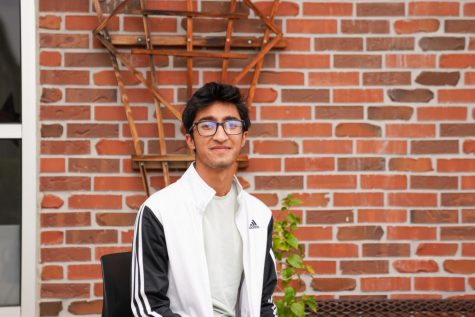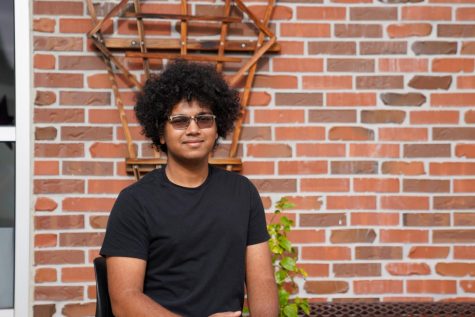Closing chapters in senior literature
Examining how changes in student course selections impacted British Literature and Contemporary Literature
June 1, 2023
Contemporary Literature, one of the most popular senior literature courses at MVHS, will drastically reduce in size from six sections to only one starting the 2023-2024 school year. In order for an English class to continue being offered to students, a minimum of 30 students are required to sign up for the class. As of course selection time, there were not enough students signed up to constitute a full class. According to Assistant Principal Janice Chen, the English department implemented a plan to save the class for the next year.
“With 17 students requesting, that’s not enough students to run one section,” Chen said. “The English department met and looked at these numbers and talked about how they wanted to approach this situation. The department agreed on trying to possibly see if there are some students from Mythology who would be willing to switch to Contemporary Literature to at least run one section of content. So that’s what ended up happening, [and] right now, we were able to add in a few more kids to be able to run one section of content next year, so we have 32 students.”
However, the reason for this shift in interest remains ambiguous. Chen herself was unsure as to why fewer students signed up for the class this year compared to past years.
“All of those course selection events were the same from last year to this year,” Chen said. “So at least in that part, I don’t think there’s anything [different] about the [advertising] that would have impacted this change or swing in numbers.”
![Pull Quote from Janice Chen: "All of those course selection events were the same from last year to this year,” Chen said. “So at least in that part, I don't think there's anything [different] about the [advertising] that would have impacted this change or swing in numbers."](https://elestoque.org/wp-content/uploads/2023/06/Pull_Quote_Janice_Chen-475x475.png)
In previous years, rising seniors were able to choose between four different options: British Literature, Contemporary Literature, Mythology and Folklore, and AP Literature. Senior Nico Kocbayindiran says that in the past, students chose Contemporary Literature over the other options because of the opportunity to work on college essays and explore a variety of films that provided unique perspectives on the world.
“The first [reason was] we were able to spend time writing our college essays at the beginning of the year, which helped out a lot with managing our time,” Kocbayindiran said. “The second reason would be that film was involved. If we want to comment on our current society and the world around us, whether it’s just America or other countries, having film as another medium to explore really broadens our horizons.”
Contemporary Literature also uniquely incorporates a final film project alongside analysis of modern films. One of these students was senior Malaya Montejano, who explains that they took this class since it aligned with their personal interests.
“I also really like film, and I was considering a film major in the future when I was a junior,” Montejano said. “So I wanted to take a kind of film classic/intro to analyzing film, but without taking the actual film art class.”
While the reasons are unclear, AP Literature and Composition teacher Randall Holaday believes one reason for the shift in allocation is declining enrollment. Last year, British Literature folded because it was down to one section and, according to Holaday, it was “the first victim of declining enrollment.”
“It is much harder to keep things updated and relevant than these more broader categories like [Contemporary Literature] and Mythology,” Holaday said. “[For] British [Literature], it’s also just odd, British Literature seems oddly specific, as opposed to any other country’s literature and so it did seem a little white, canonical, ethnocentric kind of last vestiges of that.”
Current Contemporary Literature teacher Derek Lu also highlights the potential implication of this class being removed, stating how seniors will have fewer opportunities for choice.
“There’s definitely a correlation between the reduction of humanities courses and creative expression because part of the reason why differentiation is so important is to speak to different student interests,” Lu said. “[For] students who love fairy tales and Disney movies, [classes like Myth is the] course for them. For Contemporary Lit, students who love modern texts by authors of color and who love film, the film unit is a cornerstone of Contemporary [Literature]. By eliminating these choices to the point where there’s only a standard English course and an AP English course, it eliminates diversity and [creative expression].”
Kocbayindiran believes that for its students, Contemporary Literature offers a fresh perspective on societal issues as well as analysis of a variety of relevant authors. He says the reflection and material that the class offers has not only affected him academically, but also his overall character.
“I think [Contemporary Literature] has helped flesh out an understanding of the way I think: I’ve noticed I’ve become a lot more in depth and more nuanced,” Kocbayindiran said. “Literature’s [purpose is] to introduce us to a bunch of different types of authors. I think Contemporary Lit did that. We got lots of different cultural and racial perspectives, and we got to see how those play out throughout society.”
However, Holaday believes that rather than attempting to convince students to take Contemporary Literature, the senior literature electives should incorporate elements from other literature courses to include content from all of the courses so students can still develop their literary interests.
“This signals the making of these curriculum decisions for numbers and funding reasons rather than preserving what’s good for the students and having our curriculum be responding to the student interests,” Holaday said. “I think it’s more like a harbinger of that. In terms of it actually [affecting students], I think a lot of it can be integrated into other courses.”
While the future of the class is uncertain, Lu says the class offers a unique experience for his students.
“It’s really heartbreaking because this is a class that I care deeply for,” Lu said. “It is a class in which the focus of both the reading and discussions is on contemporary authors, authors of color, queer authors, diverse authors, [which is] very different from your traditional English class reading list. It is a shame that we are only going to have one [class] next year.”


















